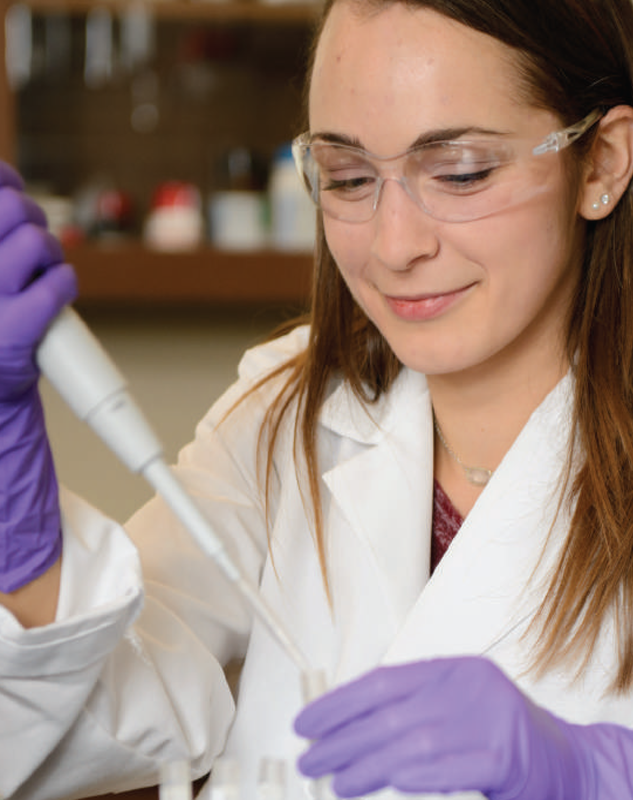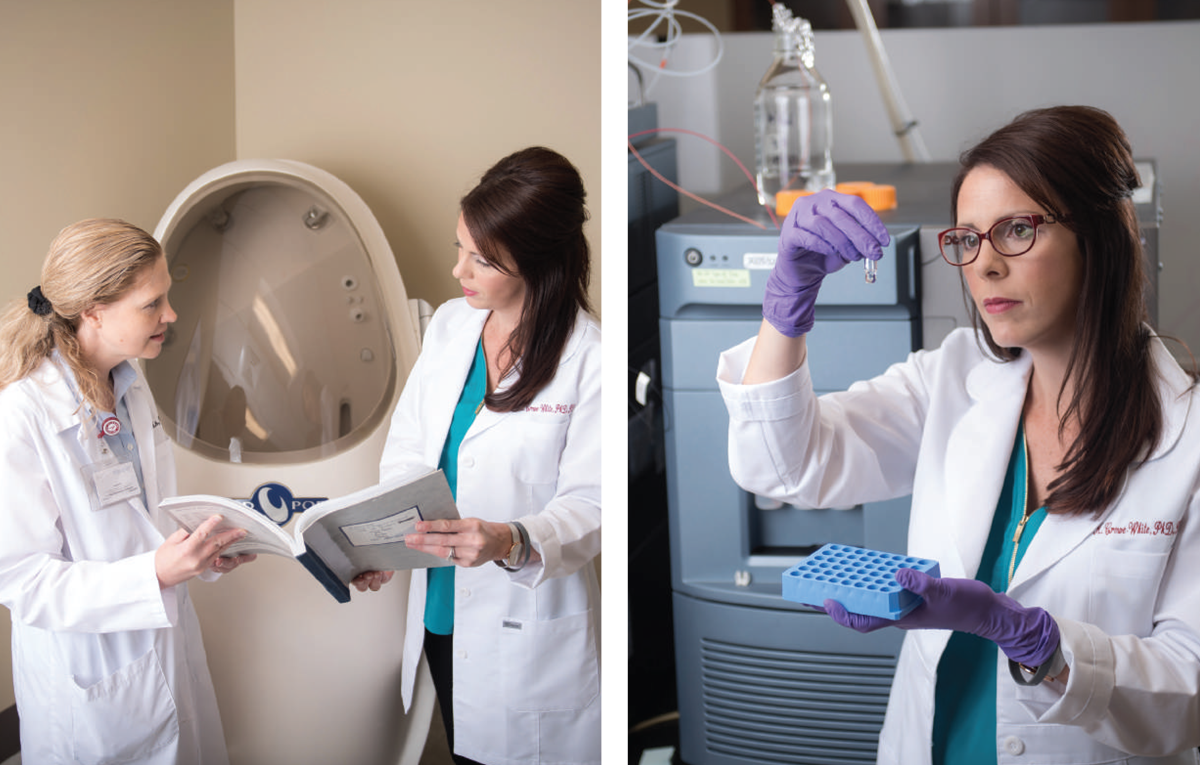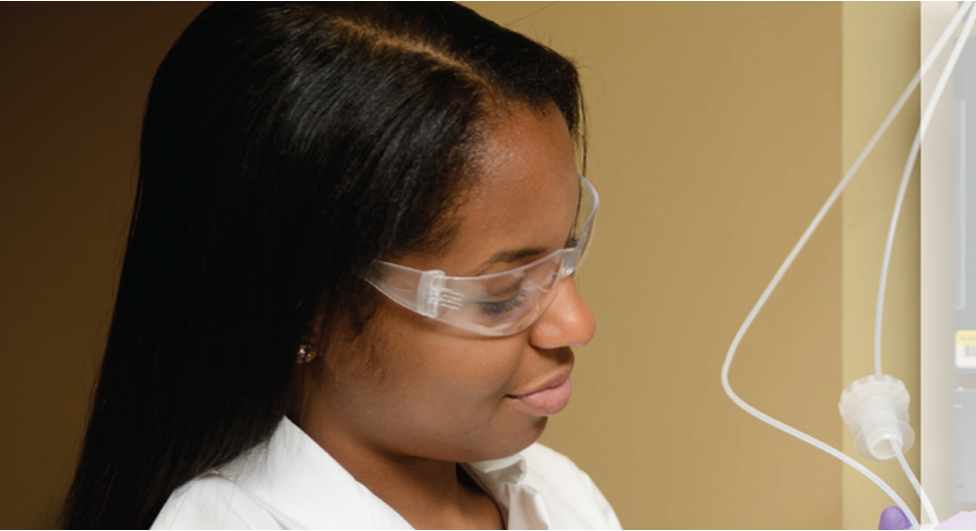Having everything in one place is so much easier for study participants. |
One Stop ShopNew nutrition lab space benefits students, faculty and research participants.
A new space on the first floor of Russell Hall serves as a one-stop shop for participants in nutrition research studies. The Nutrition and Metabolism Research Lab, which officially opened in January, is the newest addition to the Department of Human Nutrition and Hospitality Management in CHES. “The lab has always been in existence,” explains Dr. Kristi Crowe-White, associate professor in human nutrition. “It was housed in Doster 201 for as long as people can remember. We outgrew the space because of the caliber and quantity of research in the nutrition department.” With the vision and direction of Dean Milla Boschung, the department secured the current space and began a detailed renovation. The result is a state-of-the-art space that provides a clinical area, focus group room, analytical lab, bench research room, and a phlebotomy room with pass-through window to the lab, as well as additional office spaces. The previous space only encompassed an analytical lab. “Having everything in one place is so much easier for study participants,” says Dr. Amy Ellis, assistant professor in human nutrition. “There’s tighter quality control. It truly allows for bench-to-bedside research.” That, in turn, helps researchers retain participants throughout a study, which impacts the strength of that study. One piece of equipment causing much excitement is the BOD POD, which determines a body’s volume by using computerized pressure sensors to measure the amount of air the body displaces. All a participant has to do is sit quietly inside the spacious egg-shaped cabin. This Air Displacement Plethysmography technology (ADP) is considered the gold standard for measuring body fat percentage and lean body mass. “The BOD POD is safe, easy, and non-invasive for the participant, but gives us a robust measurement of body composition that will greatly enhance our clinical nutrition research studies,” says Ellis. “The analytical space also elevates the caliber of the human nutrition department’s research,” Crowe-White says. “When doing a food intervention, you don’t just pick a food/diet intervention unless you understand the composition of the food or diet,” she says. “It’s not enough to do a feeding study and then get a clinical measure. You have to have a biochemical measure of active compounds in the food or diet intervention.” “The analytical lab enables researchers to measure compounds of interest in circulation using three different types of biological samples — blood, urine and adipose tissue, which is mainly fat. When outcomes aren’t what the researchers expected, they can use the biochemical measures to look at the metabolism and kinetic piece to get a better overall picture of individual absorption,” Crowe-White says. The new space also makes it possible for students to participate in research at an undergraduate and graduate level. In Doster Hall, space limited student participation. “Our field and the knowledge of nutrition is constantly evolving, the science is evolving,” Crowe-White says. “Showing students the tangible aspects of research enables them to become better scholars and accumulators of knowledge, which they will then pass on as clinicians. As we train students and observe them getting involved in our funded research, they change the way they view the field. The students realize they are creating the science that’s going to change the shape of the nutrition discipline. “When students are hands-on, their enthusiasm increases and their passion for the information is elevated, which often results in better grades and greater career potential,” she adds. The new space also fosters greater collaboration among the department’s faculty members. “That is a hallmark of our department,” Crowe-White says. “We are collaborative researchers involved in translational research, because we know that not one discipline or training methodology will determine all nutrition interventions for the future. This is the type of space that all our faculty can use — community nutritionists, biochemists, clinical nutritionists, food scientists, and food chemists.” For more information on current and future studies, please call 1-844-348-7057. |
| Reunion Magazine | REUNION MAGAZINE |




